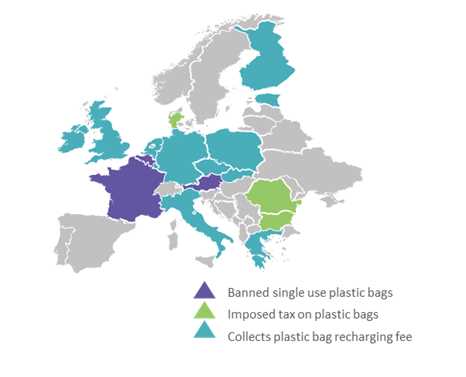
In an effort to combat the growing environmental crisis, Europe has implemented a continent-wide plastic bag ban. This bold move aims to reduce the staggering amount of plastic waste that is polluting our oceans and harming marine life. By taking action against single-use plastic bags, Europe is leading the way in sustainable practices and setting an example for the rest of the world.
The ban, which has been gradually implemented across Europe, has already shown promising results. Countries such as Denmark, Ireland, and Germany have successfully reduced their plastic bag usage by 80-90%. This significant reduction in plastic waste has had a positive impact on the environment, with cleaner beaches, healthier ecosystems, and improved overall biodiversity. It is a clear demonstration that change is possible and that we can make a difference.
It is important to note that the ban does not completely prohibit the use of plastic bags. Instead, it encourages the adoption of more sustainable alternatives, such as reusable bags made from fabric or other durable materials. These bags can be used multiple times, reducing the amount of waste generated and minimizing the negative impact on the environment.
While the ban has been widely successful, it has not been without its challenges. Some businesses and consumers have resisted the change, citing inconvenience or cost as their primary concerns. However, the long-term benefits of this ban far outweigh any short-term inconveniences. By embracing reusable bags and minimizing our reliance on plastic, we can create a cleaner and more sustainable future for generations to come.
In conclusion, Europe’s plastic bag ban is a crucial step towards protecting our environment and preserving the natural beauty of our planet. It shows that collective action can make a significant impact, and it serves as a reminder that it is our responsibility to take care of the Earth. By reducing our use of single-use plastic bags and embracing more sustainable alternatives, we can all contribute to a cleaner, greener, and healthier world.
- Why is there a ban on plastic bags in Europe?
- Environmental Impact of Plastic Bags
- 1. Pollution
- 2. Wildlife Endangerment
- 3. Microplastic Contamination
- 4. Resource Depletion
- 5. Carbon Footprint
- How do plastic bags harm the environment?
- Benefits of the Plastic Bag Ban
- What are the advantages of banning plastic bags?
- Reduced pollution
- Less waste
- Encouraging reusable alternatives
- Positive impact on wildlife
- Alternatives to Plastic Bags
- What are the alternative options for carrying groceries?
- 1. Reusable Shopping Bags
- 2. Paper Bags
- 3. Trolley Bags
- 4. Mesh Produce Bags
- Plastic Bag Bans in European Countries
- Q&A:
- What is Europe’s plastic bag ban?
- Why did Europe decide to ban plastic bags?
- How does Europe’s plastic bag ban work?
- What are the benefits of Europe’s plastic bag ban?
- How successful has Europe’s plastic bag ban been so far?
- What is the purpose of Europe’s plastic bag ban?
Why is there a ban on plastic bags in Europe?
Plastic bags have long been a significant environmental concern due to their negative impact on the planet. In Europe, the volume of plastic bags used annually is quite substantial, leading to widespread pollution and damage to ecosystems.
The ban on plastic bags in Europe has been implemented to mitigate the harmful effects caused by their widespread use. These effects include pollution of water bodies, harming marine life, and contributing to global warming.
Plastic bags take hundreds of years to break down, and even then, they only fragment into smaller microplastic particles that continue to pollute the environment. These microplastics can be ingested by marine animals, which can lead to severe consequences for their health and survival.
Furthermore, the production of plastic bags requires the use of fossil fuels and generates significant carbon emissions, contributing to climate change. By banning plastic bags, European countries aim to reduce their carbon footprint and promote more sustainable alternatives.
The ban on plastic bags has also been motivated by the need to encourage responsible consumer behavior and reduce plastic waste. Europeans are encouraged to use reusable bags made from eco-friendly materials, such as canvas or jute, instead of relying on single-use plastic bags.
Additionally, the ban aims to promote a circular economy, in which resources are used efficiently and waste is minimized. By reducing the consumption of plastic bags, Europe hopes to shift towards a more sustainable model that prioritizes recycling and reuse.
In summary, the ban on plastic bags in Europe reflects the urgent need to address plastic pollution and its detrimental impact on the environment. By restricting the use of plastic bags, Europe aims to protect marine ecosystems, reduce carbon emissions, encourage responsible consumer behavior, and promote a circular economy.
Environmental Impact of Plastic Bags
Plastic bags have become a ubiquitous part of our daily lives, but their convenience comes at a cost to the environment. Here are some key environmental impacts of plastic bags:
1. Pollution
Plastic bags pose a significant threat to the environment due to their non-biodegradable nature. When discarded improperly, they accumulate in landfills or end up in water bodies, where they can persist for hundreds of years. This leads to pollution of both terrestrial and aquatic ecosystems.
2. Wildlife Endangerment
Marine animals, such as sea turtles and seabirds, often mistake plastic bags for food and ingest them. This can cause severe injuries or even death as their digestive systems become blocked. Additionally, animals can get entangled in plastic bags, leading to suffocation or hindering their mobility.
3. Microplastic Contamination
Over time, plastic bags break down into smaller pieces called microplastics. These tiny particles are then ingested by various organisms, including fish and other marine life. This can lead to the bioaccumulation of toxins and negatively impact the entire food chain, including humans who consume seafood.
4. Resource Depletion
Plastic bags are made from non-renewable fossil fuels, such as petroleum and natural gas. The production of these bags contributes to the depletion of these resources, which has long-term effects on the environment and the economy. By reducing the use of plastic bags, we can help conserve these valuable resources.
5. Carbon Footprint
The manufacturing and transportation of plastic bags contribute to greenhouse gas emissions, including carbon dioxide and methane. These greenhouse gases contribute to climate change, which has wide-ranging negative effects on the environment, such as rising temperatures, melting glaciers, and sea-level rise. By reducing plastic bag use, we can help mitigate climate change.
To address these environmental impacts, many countries have implemented measures to reduce plastic bag consumption, such as bans and taxes. It is crucial for individuals to also play their part by opting for reusable bags, recycling plastic bags, and raising awareness about the environmental consequences of plastic bag use.
How do plastic bags harm the environment?
Plastic bags are one of the biggest culprits when it comes to environmental pollution. They have a detrimental effect on our ecosystem and contribute to several pressing environmental issues.
Firstly, plastic bags are made from polyethylene, a type of plastic derived from non-renewable fossil fuels. The production of these bags requires the use of valuable resources such as oil and natural gas, which are finite and contribute to climate change through carbon emissions.
Once plastic bags are used and disposed of, they often end up in landfills or as litter in our oceans, rivers, and streets. Due to their lightweight nature, they can easily be carried by the wind and water, causing them to accumulate in natural habitats and harm wildlife.
Marine animals such as sea turtles, dolphins, and fish mistake plastic bags for food or become entangled in them, leading to suffocation, starvation, and injuries. Additionally, plastic bags can disrupt the natural food chain when smaller organisms ingest microplastics, which have been broken down from larger plastic debris.
Furthermore, plastic bags take decades to centuries to decompose, persisting in the environment for a long time. As they break down, they release toxic chemicals and microplastics that contaminate soil and water sources, posing threats to human health and biodiversity.
Efforts to reduce the use of plastic bags and promote alternative options such as reusable bags are crucial in mitigating these harmful effects. By choosing sustainable alternatives and adopting responsible waste management practices, we can protect our environment and preserve its beauty for future generations.
Benefits of the Plastic Bag Ban
The plastic bag ban in Europe has brought about several benefits, both for the environment and society as a whole. Here are some of the key advantages:
| 1. Reduces plastic waste | With the ban in place, the use of single-use plastic bags has significantly decreased. This has led to a reduction in plastic waste, which helps protect marine life and ecosystems. |
| 2. Decreases litter | Plastic bags are a common source of litter, and they often end up in streets, parks, and waterways. By banning plastic bags, the amount of litter is reduced, creating cleaner and healthier communities. |
| 3. Saves energy and resources | Producing plastic bags requires significant amounts of energy and natural resources, such as oil and water. By eliminating their use, the energy and resources needed for their production are saved, contributing to a more sustainable future. |
| 4. Promotes reusable alternatives | The ban encourages people to switch to reusable alternatives, such as cloth or canvas bags. These bags are more durable and can be used multiple times, reducing the need for single-use plastics and promoting a culture of sustainability. |
| 5. Protects wildlife | Plastic bags pose a significant threat to wildlife, as animals can mistake them for food or become entangled in them. By banning plastic bags, the risk of harm to wildlife is minimized, helping to protect vulnerable species. |
| 6. Improves recycling rates | With fewer plastic bags in circulation, recycling facilities can focus their efforts on other types of plastic waste. This can lead to improved recycling rates and a more efficient recycling system overall. |
The plastic bag ban in Europe has proven to be an effective step towards reducing plastic pollution and promoting sustainable practices. By implementing similar measures worldwide, we can make a significant positive impact on the environment and create a cleaner, greener future for all.
What are the advantages of banning plastic bags?
Banning plastic bags comes with several advantages for the environment and society as a whole. Some of the key advantages include:
Reduced pollution
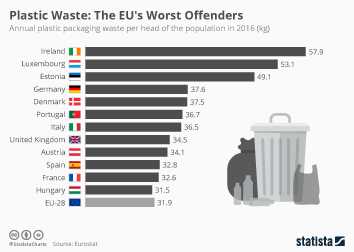
Plastic bags are a major source of pollution, particularly in marine ecosystems. They often end up in rivers and oceans where they can harm marine life and ecosystems. By banning plastic bags, we can significantly reduce plastic pollution and protect the environment.
Less waste
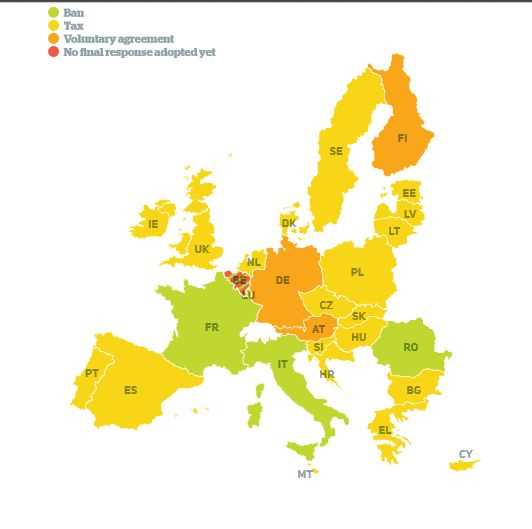
Plastic bags are typically used for a short period of time before being discarded. By banning plastic bags, we can decrease the amount of waste produced and reduce the strain on landfill sites. This can help promote more sustainable waste management practices.
Encouraging reusable alternatives
Banning plastic bags encourages the use of reusable alternatives such as cloth bags or tote bags. These reusable options are more durable and can be used multiple times, reducing the need for single-use plastic bags. This shift towards reusables can help protect natural resources and reduce energy consumption associated with plastic bag production.
Positive impact on wildlife
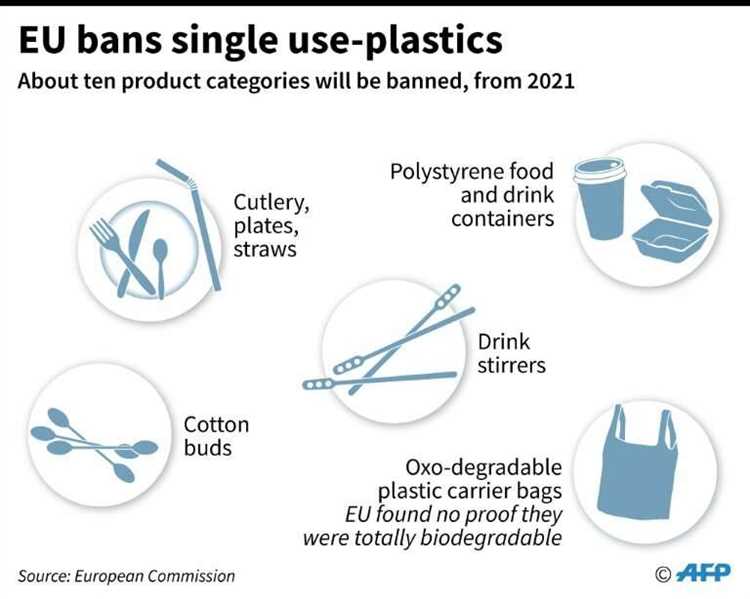
Plastic bags can pose a serious threat to wildlife. Animals, particularly marine species, can mistake bags for food or become entangled in them, leading to injury or death. By banning plastic bags, we can help protect wildlife and preserve biodiversity.
In conclusion, the advantages of banning plastic bags are clear – it reduces pollution, decreases waste, promotes reusable alternatives, and protects wildlife. By implementing such bans, we can take a significant step towards creating a more sustainable future.
Alternatives to Plastic Bags
With the ban on plastic bags in Europe, it is important to explore alternative options for carrying and transporting goods. Here are a few alternatives to plastic bags:
- Reusable Cloth Bags: These bags are made from sturdy materials such as cotton or canvas and can be used multiple times. They are available in various sizes and designs, making them a fashionable and eco-friendly choice.
- Paper Bags: Paper bags are an alternative to plastic bags and are often made from recycled materials. They are biodegradable and can be easily recycled, making them an environmentally friendly option.
- Biodegradable Plastic Bags: These bags are made from materials that break down naturally over time, reducing their impact on the environment. However, it is important to note that these bags still contribute to plastic pollution and should be used sparingly.
- Mesh Bags: Mesh bags are lightweight and durable, making them a great alternative for carrying fruits and vegetables. They allow air to circulate, helping to keep produce fresh for longer.
- Bamboo or Jute Bags: Bamboo and jute bags are natural and biodegradable alternatives to plastic bags. They are strong and durable, making them suitable for carrying heavy items.
By opting for these alternatives, individuals can reduce their reliance on single-use plastic bags and contribute to a cleaner and more sustainable environment. Remember to always carry a reusable bag with you when shopping!
What are the alternative options for carrying groceries?
With the plastic bag ban in place, there are several alternative options for carrying groceries that are both convenient and sustainable. Here are some popular alternatives:
1. Reusable Shopping Bags
One of the most common alternatives to plastic bags is using reusable shopping bags. These bags are made from durable materials such as canvas, nylon, or recycled plastic. They are designed to be sturdy and can hold a significant amount of groceries. Reusable shopping bags are not only eco-friendly but also come in various designs and sizes, making them a fashionable choice.
2. Paper Bags
Another option is using paper bags, which are biodegradable and recyclable. Paper bags are made from sustainable sources such as trees and can be reused several times. They are typically more expensive than plastic bags but are a great alternative for those who prefer a disposable option.
3. Trolley Bags
Trolley bags are reusable bags that are specifically designed to fit inside shopping carts. They typically come in a set of four or more bags that can be easily separated and hung on the cart during shopping. Trolley bags are a convenient choice as they allow for organized packing and can be easily carried home and unpacked.
4. Mesh Produce Bags
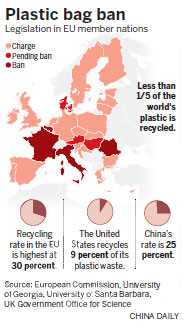
When it comes to carrying fruits and vegetables, using mesh produce bags is an excellent alternative. These bags are lightweight, breathable, and reusable. They can be easily washed and are perfect for keeping your produce fresh and separate from other items in your grocery bag.
Remember, whichever alternative option you choose, it’s essential to have a few reusable bags on hand so that you’re always prepared for your next grocery run. By opting for these alternatives, you can make a positive impact on the environment and reduce your plastic waste.
Plastic Bag Bans in European Countries
Several European countries have implemented bans on plastic bags in an effort to reduce plastic waste and promote sustainable practices. These bans typically aim to discourage the use of single-use plastic bags and encourage consumers to bring their reusable bags when shopping.
1. France: France was one of the first countries in Europe to implement a ban on plastic bags. The ban took effect in July 2016 and prohibits the distribution of single-use plastic bags at checkouts in supermarkets, grocery stores, and pharmacies. However, there are exemptions for certain bags, such as those used for packaging loose food items or protecting garments.
2. Italy: Italy introduced a ban on non-biodegradable plastic bags in 2011. Under this ban, retailers are not allowed to provide non-compostable plastic bags to their customers. Instead, they must offer biodegradable or compostable alternatives.
3. Germany: Germany implemented a partial ban on plastic bags in 2016. The ban prohibits the distribution of lightweight plastic bags in retail stores but allows thicker bags made of more durable material. This move aims to promote the use of reusable bags and reduce plastic waste.
4. Spain: Spain has also taken steps to reduce plastic bag usage. In 2018, the government introduced a law that requires shops to charge customers for plastic bags. This measure aims to incentivize customers to bring their own reusable bags and reduce plastic waste.
5. Ireland: Ireland implemented a plastic bag levy in 2002, which has resulted in a significant reduction in plastic bag usage. Under the levy, customers are charged a small fee for each plastic bag they use. This has led to a dramatic decrease in plastic bag consumption and an increase in the use of reusable bags.
6. United Kingdom: In the United Kingdom, a 5p charge was introduced for single-use plastic bags in 2015. The charge applies to all retailers, including supermarkets and small shops. This has led to a significant reduction in plastic bag usage and has generated funds that are used for environmental projects.
These are just a few examples of the plastic bag bans and measures implemented in European countries. The overall goal is to reduce the environmental impact of plastic bags and encourage more sustainable alternatives.
Q&A:
What is Europe’s plastic bag ban?
Europe’s plastic bag ban refers to the measures taken by European countries to restrict or eliminate the use of single-use plastic bags. These bans aim to reduce the environmental impact of plastic bags, such as pollution and waste.
Why did Europe decide to ban plastic bags?
Europe decided to ban plastic bags because of their negative impact on the environment. Plastic bags are a major source of pollution, particularly in oceans and waterways, where they harm marine life and degrade ecosystems. Banning plastic bags is seen as a way to reduce this pollution and promote more sustainable alternatives.
How does Europe’s plastic bag ban work?
The specifics of Europe’s plastic bag bans vary from country to country, but generally, they involve either a complete ban on single-use plastic bags or the introduction of fees or taxes on their use. Some countries also provide exemptions or alternative options for certain types of bags, such as durable, reusable ones.
What are the benefits of Europe’s plastic bag ban?
The benefits of Europe’s plastic bag ban include a reduction in plastic waste and pollution, protection of ecosystems and wildlife, and a shift towards more sustainable consumption patterns. The bans also encourage the use of reusable bags, which can help save resources and reduce greenhouse gas emissions.
How successful has Europe’s plastic bag ban been so far?
The success of Europe’s plastic bag ban varies across countries, but overall, it has led to significant reductions in plastic bag usage. For example, Ireland saw a 95% drop in plastic bag consumption after implementing a levy on them in 2002. Other countries, such as France and Italy, have also reported positive results in terms of reduced plastic bag usage and increased consumer awareness.
What is the purpose of Europe’s plastic bag ban?
The purpose of Europe’s plastic bag ban is to reduce the consumption of single-use plastic bags and to encourage the use of more sustainable alternatives.